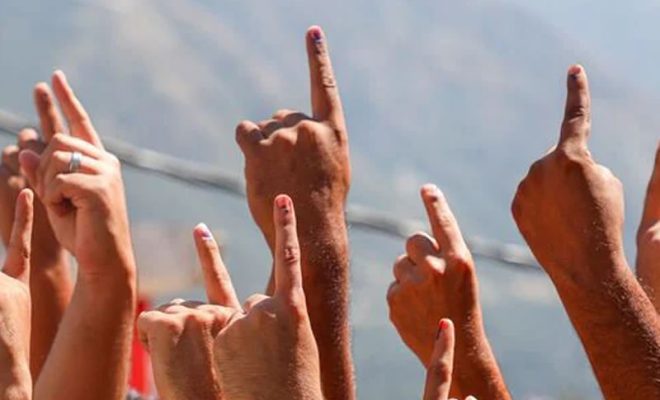‘One Nation, One Election’ – How does it work? Does the bill limit the power of the State Government?

The opposition parties around the nation are seething with anger against the BJP government’s “One Nation, One Election” bill (consisting of 11 recommendations) which has been approved by the Union Cabinet. The bill will be tabled in the parliament on December 13 and 14, for which PM Modi expects all the members of the house to attend and participate in the discussions during the event.
‘One Nation, One Election’ – A Quick View
Question arises when the opposition parties join hands against the bill named “One Nation, One Election” of the BJP government which was once followed post the 1947 freedom India’s,‘1951-52’ General Elections till 1967.
India is a country with a dense population and the expenditure of the elections also rises after every General and Assembly elections. Based on the reports submitted by the Election Commission of India, the expenditure of 2024 elections was around Rs.1.35 lakh crore, which is larger than the previous election. To resolve these economic hurdles due to the frequent elections throughout the nation, the BJP government proposed the Bill of “One Nation, One Election”.
Estimated Changes Expected in elections and voting
- The idea of this bill will bring into the action of conducting the elections for both General and Legislative Assembly on the same day.
- It effectively increases the participation of the voters into elections for both the elections.
- A unified Voter roll and ID card to the eligible voters for all the elections which will come into effect after the constitutional amendment.
- Deducts the expenditure spent for elections (General and Legislative Assembly)
- Resolves the election duties and responsibilities of the government officials who are involved by compromising their assigned works.(particularly during the elections like local body, state assembly)
- 1st phase – Elections of Lok Sabha and State Assembly, 2nd Phase – Municipal and Panchayat elections within 100 days.
What amendments will be made?
| Article | Amendments |
| 82A | A sub-clause (1) – appointed date A sub-clause (2) – end the terms of Lok Sabha and State Legislative Assembly together |
| 83(2) | A sub-clause (3) & (4) – duration and dissolution of the Lok Sabha and Legislative Assemblies |
| 327 | Insert the term, simultaneous elections |
The proposed bill is expected to be passed in the Cabinet before the end of the winter session.
Emerging Resistance of the Opposites
The opposition parties expressed their dissatisfaction towards the approval of the bill and state the government led by PM Modi is moving towards the “Dictatorship” by choking the power of the state government and the local body system. Some of the regional parties condemned that ‘One Nation, One Election is impossible in a country like India’.



